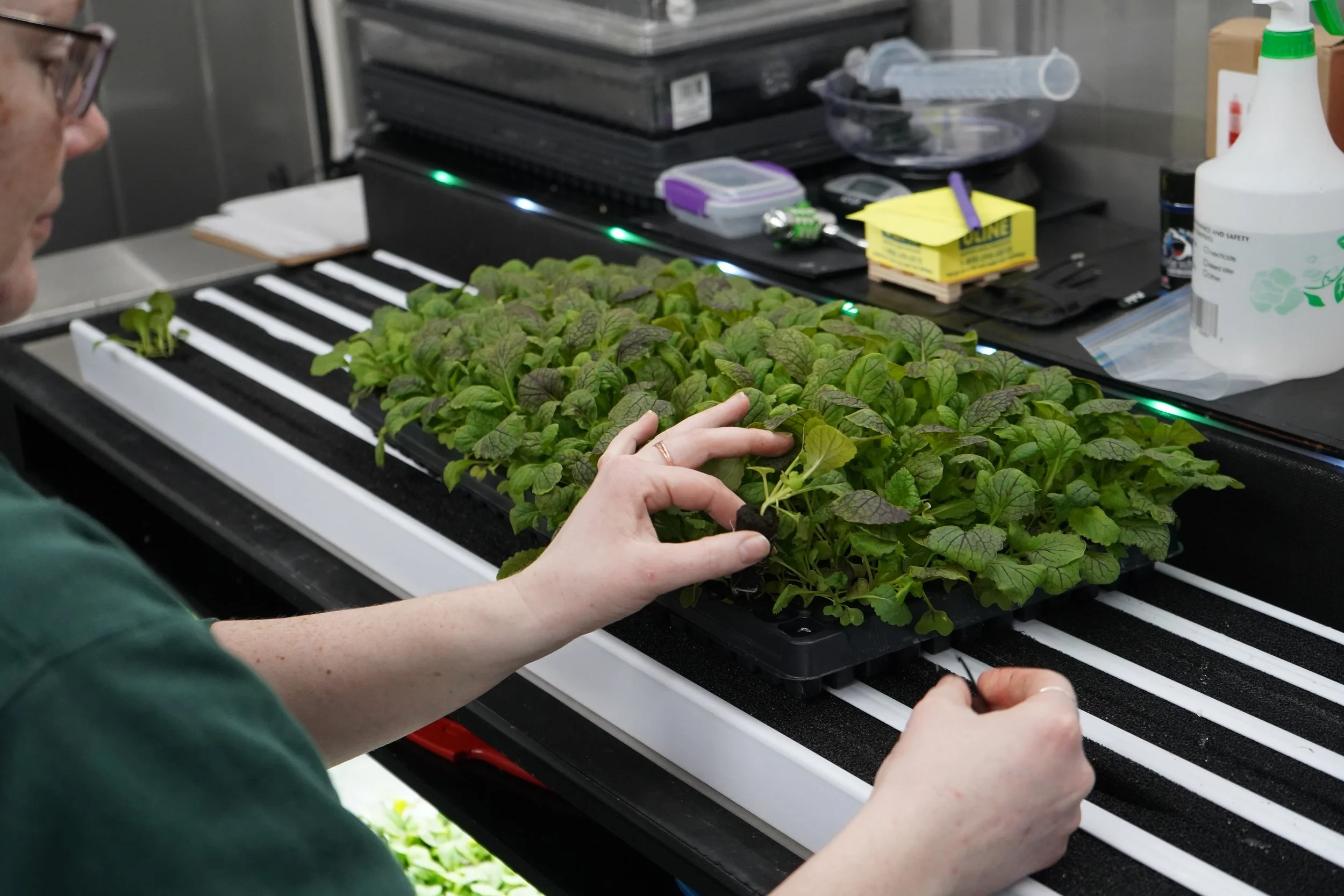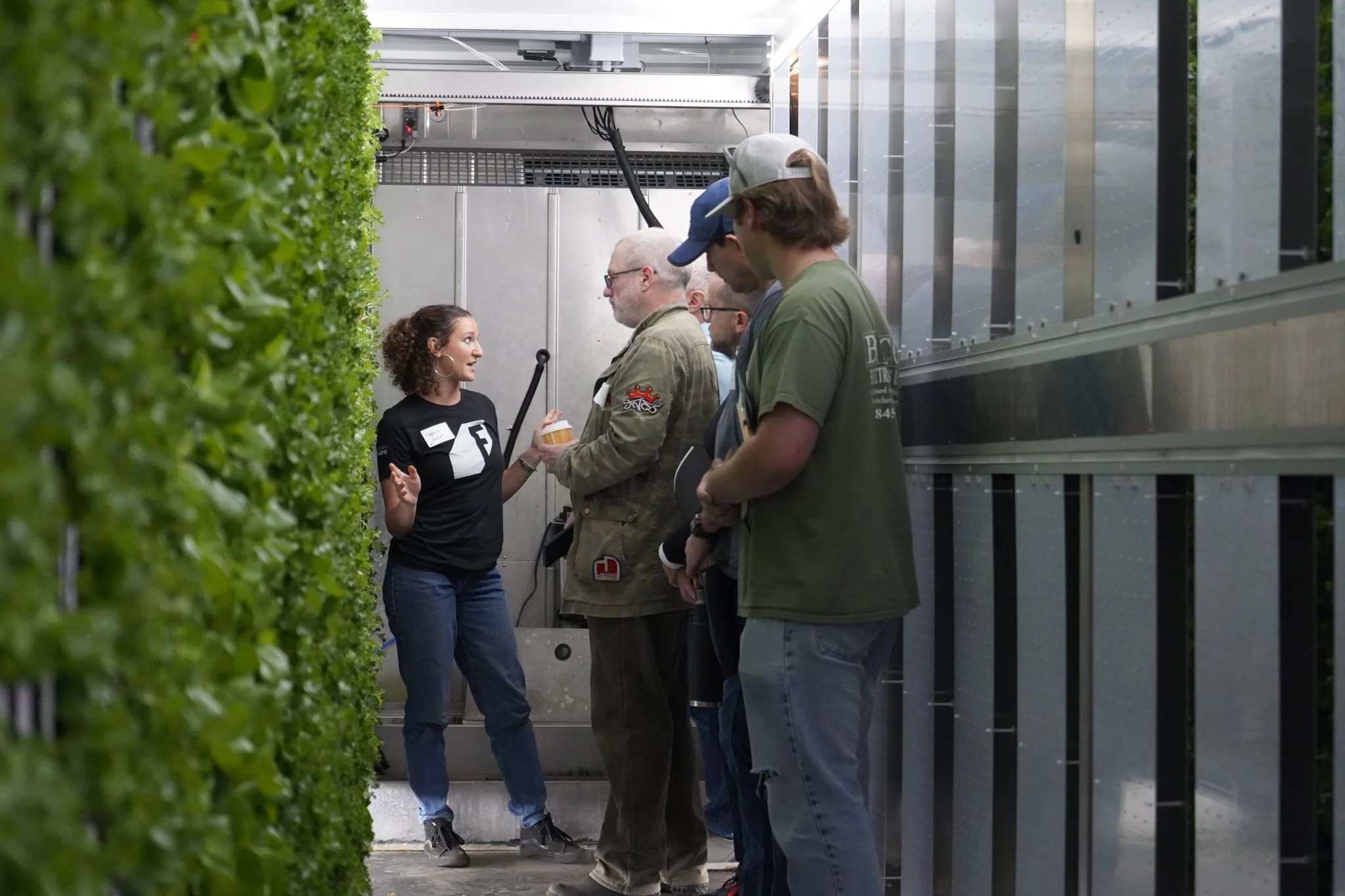Hydroponic farming is a revolutionary way to grow plants without soil, using nutrient-rich water systems for faster growth and higher yields. Discover the key benefits, popular hydroponic systems, and real-world applications from nonprofits to healthcare, zoos, and more, all driving sustainable food solutions. Learn how you can get started with Freight Farms' customizable hydroponic solutions today."
Read MoreHospital-based farming is an innovative approach that integrates agricultural practices within healthcare settings to improve patient outcomes. Hospitals can enhance patient recovery, reduce food insecurity, and promote overall well-being by providing fresh, nutritious food directly from on-site farms.
Read MoreFreight Farms provides a straightforward, sustainable solution for growing produce. This guide offers a comprehensive look at the daily, weekly, and monthly tasks required to maintain a Freight Farm, with detailed steps to give prospective buyers a clear understanding of farm management.
Read MoreCo2 plays a crucial role in plant growth by aiding photosynthesis, turning carbon dioxide into energy. By supplementing Co2, plants grow larger, retain more moisture, and become more efficient with water use. Learn when to use Co2 and how it can enhance your farm’s output.
Read MoreAs vertical farming grows, so do the possibilities for crops you can cultivate in your farm. From leafy greens to herbs and even experimental crops, Freight Farms offers a vast range of options. However, with so many choices, it’s essential to start with a solid crop plan.
Read MoreDiscover essential cleaning tips for your Freight Farm to boost plant health and maximize efficiency. Learn how daily maintenance routines can prevent pests, bacteria, and algae, keeping your vertical farm productive and thriving.
Read MoreOngoing changes to our world, such as increasingly extreme weather and population growth have led many people, particularly in urban communities, to take a long, hard look at food production and distribution.
Read MoreThinking about launching a Freight Farms project in your city, town, or community? We’re sharing 5 tried-and-true tips to find customers in four historically successful sales channels: CSA, farmers markets, restaurants, and grocery stores. Learn how to pitch your produce and value propositions to customers in each segment for a successful business plan!
Read MoreWhat do you picture when you hear the word “farm"? We bet you’re imagining a pastoral scene of rolling hills, maybe some grazing cows and a big red barn, right? Typically that isn’t the case for our freight farmers…until now
Read MoreYou may be wondering how exactly the LGM can grow in such frigid temperatures. Here are 5 features of LGM that enable our freight farmers to grow in cold climates:
Read MoreOne of the best things about having a Leafy Green Machine at our office in Boston is that we can experiment with growing crops that we’ve never grown before. We do this so we’re able to learn more about what grows best, and relay that information onto our freight farmers.
Read MoreWe’re thrilled to finally announce the first university campus to integrate the Leafy Green Machine into their dining operations. Stony Brook University in New York is already a leader in sustainability, but decided to take things a step further by growing food right next to its dining hall.
Read MoreWe spent countless hours testing and developing to make the newest model of the Leafy Green Machine sleeker, more energy efficient, and easier to use.
Read MoreBack in 2010 when Freight Farms was just beginning to establish itself, “Ag Tech” hadn’t gained much traction as an industry.... Fast forward 5 years and it’s become a rapidly-growing industry that we’re thrilled to have pioneered.
Read MoreFreight Farms is unveiling the newest model of the Leafy Green Machine (LGM for short) and we want to loop you in with the newest and greatest features of the system!
Read MoreLocated in the heart of the city of Boston, right down the street from Fenway Park, Boston Latin is pioneering the first farm-to-school project of its kind.
Read More
















